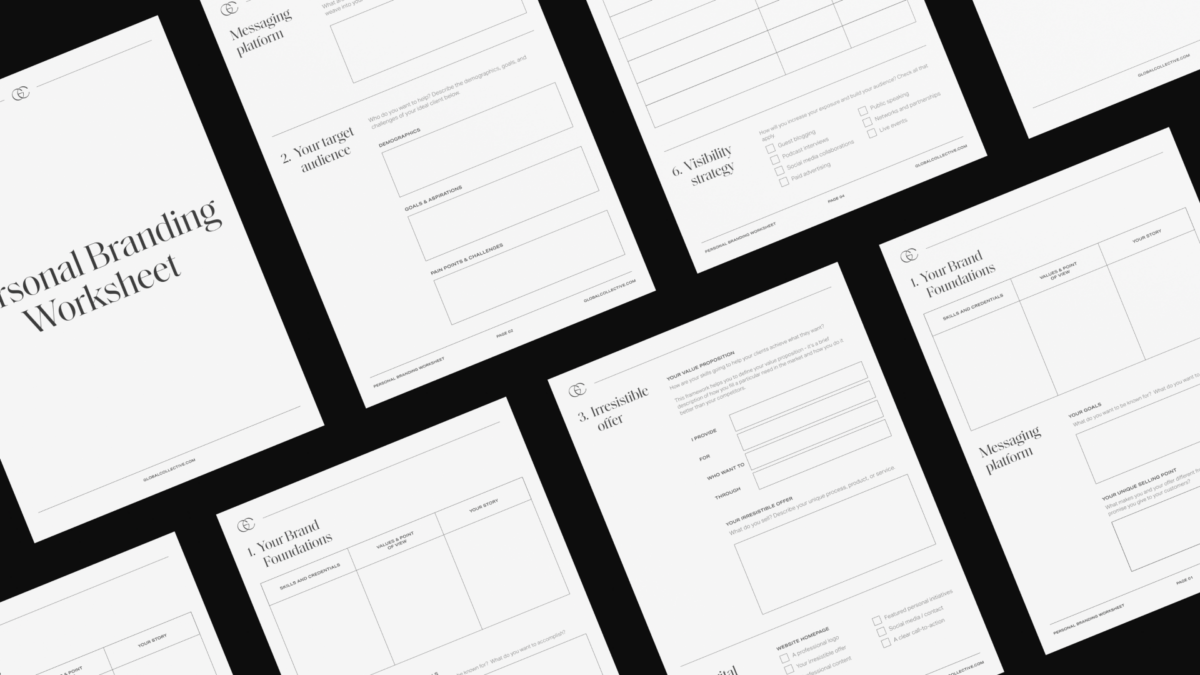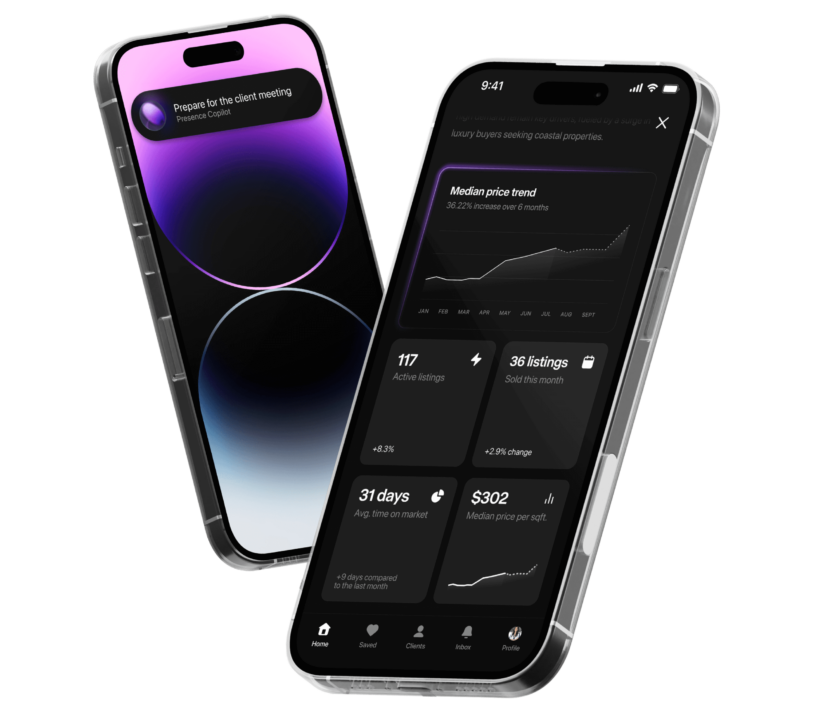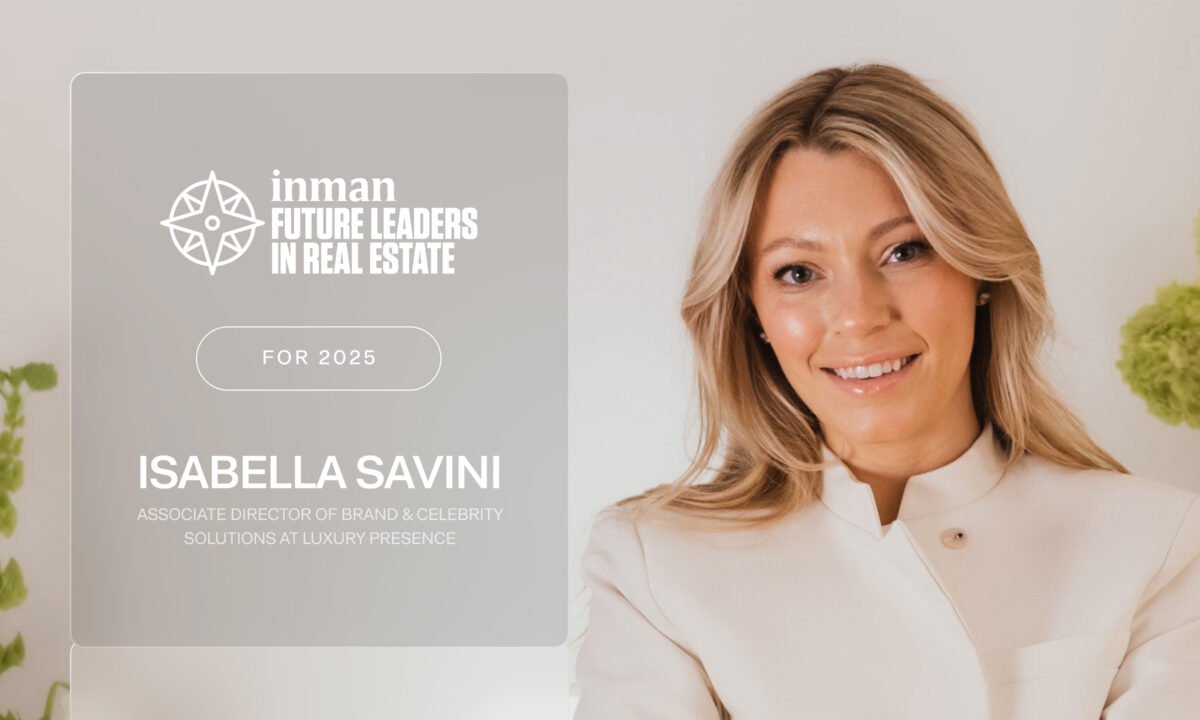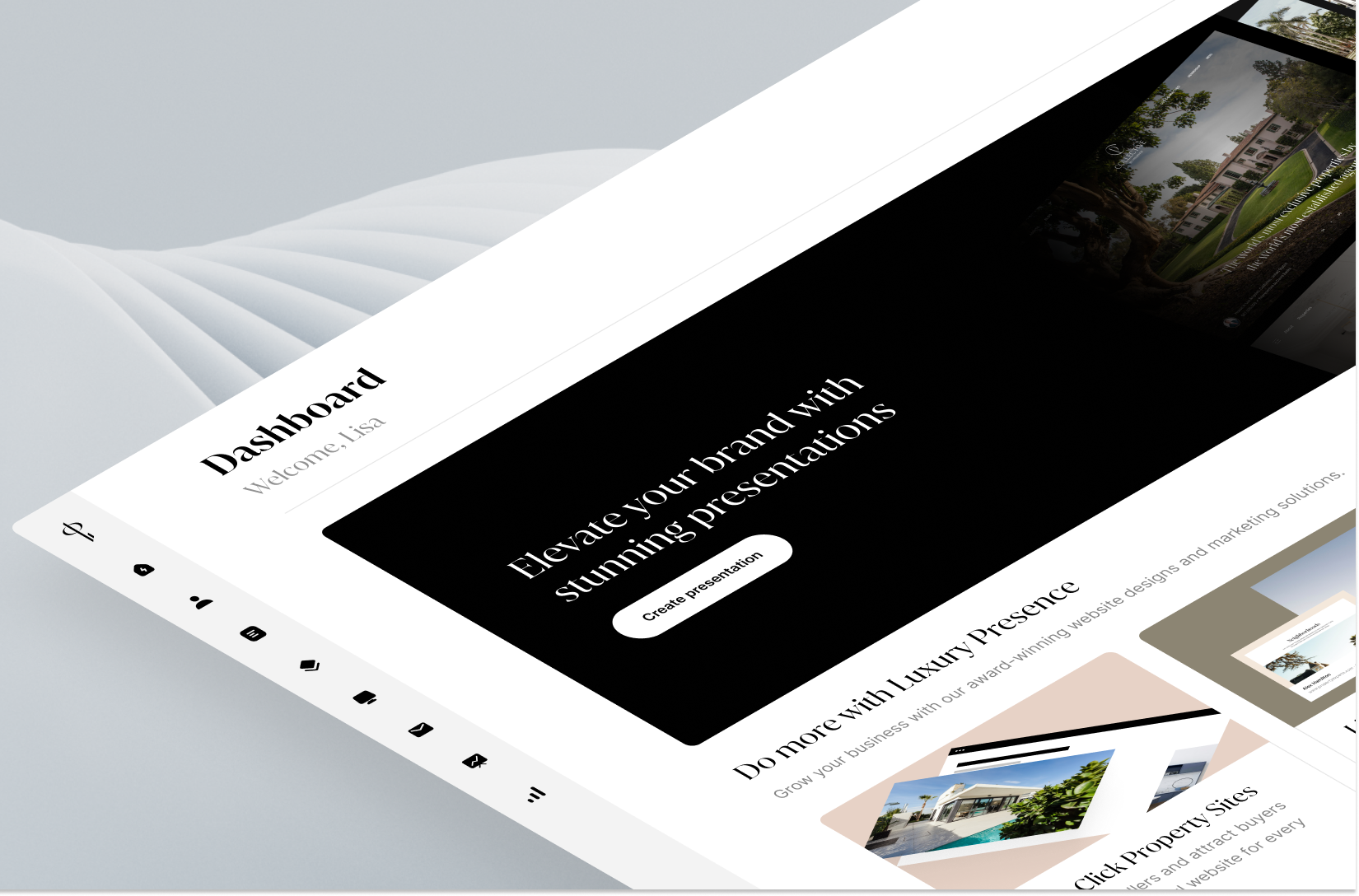Curious what it would be like to have a branded app dedicated to your real estate business? In yesterday’s Luxury Presence Panel webinar, industry leaders discussed the power of branded mobile apps in real estate.
Panelists Scott Kogos of Forbes Global Properties, Elena Gartz of Holland Group Real Estate, Ricardo Rodriguez of Coldwell Banker, and Zac Hays of Luxury Presence packed the conversation with surprising insights about branding, lead generation, and client experience. Here are the top takeaways that might change the way you think about real estate marketing.
Find It Fast
1. Mobile apps make clients feel special
The real estate industry is crowded, and standing out is critical. Rodriguez emphasized how the early adoption of new tools has always helped him differentiate his business as forward-thinking, tech-savvy, and committed to offering the best experience possible.
“As soon as I found out that Luxury Presence had this branded app, I was like, okay, let’s just get it done. There was no reason to even have a conversation about it — it just made tremendous sense,” he said.
Kogos highlighted how his branded mobile app elevates the client experience. “They think you’re the real deal,” he said. “Because [my clients are] so important to me, I’m investing in our relationship together.” He added that both his clients and his local competition are often surprised and impressed by his custom-branded app.
Beyond impressing clients, Kogos noted that his app fosters a deeper connection. “It makes them feel special. They know they are getting personalized attention. And it’s not just about listings — it’s about giving them an entire experience that continues after the transaction.”
Gartz noted that, while Luxury Presence’s white-labeled mobile app is an industry trailblazer, agents must ensure clients are using it. “It starts on day one. … Our potential clients are so excited to work with us and so excited to use our tools that we set the stage: This is how we work; this is how we communicate,” she said. “We make sure it’s communicated in our e-blasts, our newsletters, our social media, our direct mail, and our websites. It’s a part of our ecosystem — it’s a part of our brand identity.”
2. Branding is about building trust
Similarly, Rodriguez noted that branding is much more than aesthetics. He explained that staying ahead of industry trends and consistently innovating is a key way to build strong, lasting relationships with clients.
“Branding is not about collateral… branding is about how you make your clients feel,” he said. “Brand equals trust. The moment in which clients trust what we are bringing to them in terms of a service, then we really have developed that brand.”
Not everyone thinks of technology as part of a brand offering, but for Rodriguez, it expresses his core value of ingenuity. “I remember when I first started incorporating video 20 years ago when nobody was doing it … then, the same thing with social media — [I was] one of the first people to really introduce social media into our marketing,” he recalled. “For me, to have the mobile app is just an extension of that commitment to innovation.”
Rewrite your brand strategy
Our free resources can help you define your personal brand, level up your marketing plan, and reach your target audience.

3. Controlling the customer experience is key
Another clear benefit of a branded app is the ability to keep clients within a curated experience, rather than sending them to third-party platforms. “Perception is everything,” Gartz said. “The highest-performing brands in any industry can control the experience.”
Because the Luxury Presence app is continually updated by its staff of experts, real estate professionals don’t have to worry about the technology. They can lean into the “opportunity to create these specific kinds of curated experiences,” according to Gartz. She explained that it’s an easy way to back up marketing claims of being innovative without having to develop your own technology and submit it to the App Store.
Gartz also pointed out that having one’s own branded app means clients don’t have to turn to third-party real estate portals for information, where they may be exposed to competing agents. Instead of pushing them to a clunky local multiple listing system (MLS) site or Zillow, the app keeps clients and prospects engaged in the ecosystem and consistently exposed to the agent’s brand, content, and services.
4. A mobile app can be a lead-generation machine
Beyond nurturing existing leads, a branded app can be a powerful tool for attracting new clients. Rodriguez noted that the app is an active part of his team’s marketing efforts.
“We have it on digital campaigns, ads, and magazines… we’re getting inquiries from people who are not even in our sphere,” he said. “We’re seeing inquiries from people who say, ‘Hey, I don’t see anyone else doing this.’ It’s really making people take notice.”
Rodriguez added that investing in the app can open new doors in terms of both lead generation and referrals: “It’s also catching the attention of other colleagues in other markets who see this technology and want to refer their clients to us because we offer something different.”
5. A space for private listings and off-market opportunities
With inventory tightening, off-market deals have become a crucial strategy for some agents. Kogos shared how the ability to share pocket listings opens up new options for sellers who need additional privacy or want to test the market.
“I have the ability on my own app to actually offer a seller’s apartment privately,” Kogos said. “I had a seller ask, ‘What does that mean — off-market?’ And I told him, ‘We can take it off the MLS but still market it to individuals or smaller groups.’” Kogos added that the seller loved the idea because it created an exclusive feel.
6. Speed matters — mobile apps accelerate transactions
Everyone on the panel agreed that mobile apps significantly speed up the process. “Clients don’t have to wait for the morning [MLS] email. We can [make any] changes immediately, eliminating delays,” Rodriguez said.
Gartz echoed this sentiment, arguing that whenever you give a client the ability to go directly into an app and comment in real time, transactions move much faster. Emails get lost, but an app keeps the conversation active. “We live in a mobile-first world,” she said, noting that apps align perfectly with how people interact today.
Kogos pointed out that real-time text messaging within the app doesn’t feel as much like work as responding to an email or phone call might. “You put properties into a curated collection,” and clients can comment directly inside the app. “It’s fun.”
7. AI-powered tools create efficiency
As Luxury Presence’s chief product officer, Hays shared that the artificial intelligence tools the team integrated into the app are designed to make agents’ lives easier. These features help real estate professionals work more efficiently, eliminating time-consuming manual data entry while providing a more seamless experience for clients.
“One of the cool things that we have here is this AI-powered notes feature. You can set up a saved search just using your voice. You can talk as long as you want, mumble, make mistakes — it will clean all that up and you have these really nice notes you can share with your clients,” he said.
Take control of your brand experience
As the real estate industry evolves, having a branded mobile app will cease to be a competitive advantage and become a necessity. If you’re ready to offer your clients an exclusive, seamless experience that enhances your brand and drives lead generation, now is the time to act.
Meet your new app
Learn how Luxury Presence’s mobile solution boosts client collaboration and integrates AI to help agents stay organized.




